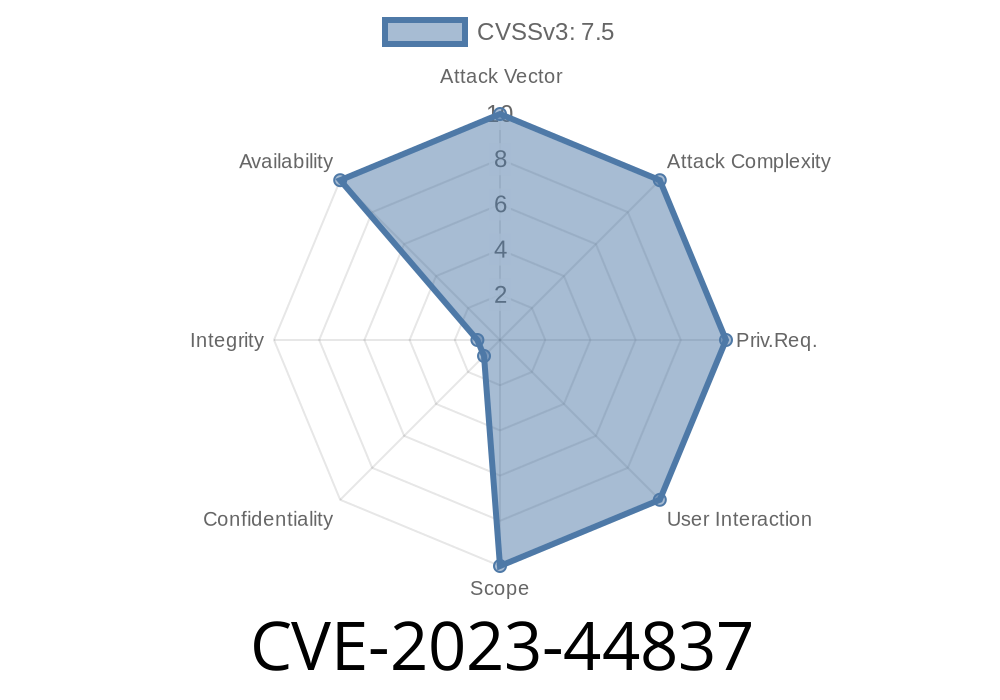In the bustling world of home networking, routers are quiet workhorses. But sometimes, hidden flaws turn them into attack vectors. This post takes a close look at CVE-2023-44837, a buffer overflow vulnerability found in the D-Link DIR-823G (hardware version A1, firmware v1..2B05), and explains how an attacker can shut down your router with a specially crafted request.
What Is CVE-2023-44837?
CVE-2023-44837 was discovered in late 2023 by security researchers when they learned the SetWanSettings function in the D-Link DIR-823G’s web server fails to properly check the size of the Password parameter. This means an attacker could send a too-long password, “overflowing” the buffer, and potentially crashing the router. This is a classic buffer overflow vulnerability.
Affected Product:
Where's The Issue?
When configuring your WAN settings, the router’s backend code takes parameters from the web form. But the Password parameter isn’t checked for size. If an attacker sends a Password string that’s too long, it can overflow the memory buffer, leading to a crash or reboot.
The Proof-of-Concept (PoC) Exploit
Let’s look at a simple example of what a malicious attacker could do. (Don’t try this on any devices you don’t own!)
Code Snippet: Crashing The Router with curl
curl -s -X POST \
-d "Password=$(python3 -c 'print("A"*256)')" \
http://ROUTER_IP/goform/SetWanSettings
What is this doing?
Why Does This Work?
The SetWanSettings function just copies the Password value straight into a buffer in memory without checking its length. When the buffer isn’t big enough, the extra data overruns into other memory areas, causing unpredictable behavior—most often, the web service will crash.
This is a serious DoS (Denial of Service) bug: with a few lines of code, anyone on the local network or sometimes even remotely can take down your router until it’s rebooted.
How To Protect Yourself
D-Link has NOT released a patch as of June 2024.
Check D-Link advisory pages for updates:
References & Original Reports
- CVE-2023-44837 at MITRE
- Exploit-DB: D-Link DIR-823G SetWanSettings Buffer Overflow
- Packet Storm Security Advisory
In Summary
CVE-2023-44837 is a very simple but powerful bug. By sending an oversized password, even a beginner script-kiddie can completely crash a D-Link DIR-823G router with this firmware. This shows why keeping network devices patched and protected is critical.
Stay alert, protect your devices, and keep watch for new patches.
*This post is exclusive to you! Please do not re-use without permission.*
Timeline
Published on: 10/05/2023 16:15:12 UTC
Last modified on: 10/06/2023 15:19:36 UTC
